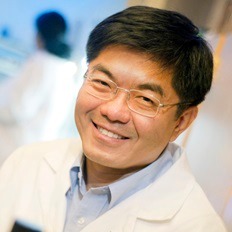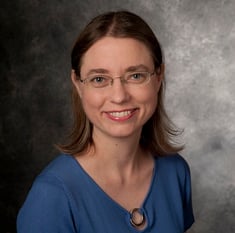The Degree that is Propelling Society Forward:
A Complete Guide to Earning Your Ph.D. in Electrical and Computer Engineering
In a technology-driven era, the disciplines of electrical and computer engineering are attracting some of the best and brightest students who are capable of imagining and creating the world of the future. As our world becomes more connected — think smart homes, wearable technology, artificial intelligence, and wireless everything — these engineering fields have moved to the forefront of in-demand careers and have changed the way we interact with the world around us.
In this guide, we will explore the many facets of electrical and
Pioneers of Science and a Solution for the Modern World: Exploring the Fields of Electrical and Computer Engineering
Electrical engineering includes the design, creation, and maintenance of an electrical control system or piece of equipment. Essentially, if electricity is involved, electrical engineering has been used to bring that system to life. These systems can be large scale, like power grids or lighting and heating systems within homes and offices, or smaller scale, such as the circuits within computers and microprocessors.
Electrical engineering is at work all around us through the power in homes, wifi, Bluetooth technology, drones, smartwatches, security systems, and much more.
Computer Engineering is specifically concerned with the design and development of computer systems. Involving both hardware and software development, computer engineers could develop anything from
Computer engineering can be seen in everyday life through cybersecurity software, machine intelligence, biomedical devices, digital applications, the computer systems within cars and more.
Download A Complete Guide to Earning Your Ph.D. in Electrical and Computer Engineering
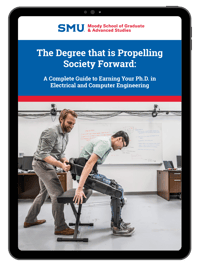
Access the guide at any point by saving it to your laptop to reference while you navigate applying to graduate school.
Receive this resource as an eBook!
A Ph.D. in Electrical or Computer Engineering Gives You Access to the Cutting Edge Research of the Future
Similar to other areas of doctoral study, students pursuing a Ph.D. in Electrical or Computer Engineering are required to make a significant advance to scientific knowledge within the field. These researchers are expected to explore pressing questions within their disciplines and answer them, translating their findings into steps for practical application. Rather than studying predetermined scientific research, Ph.D. students are literally discovering and inventing the future.
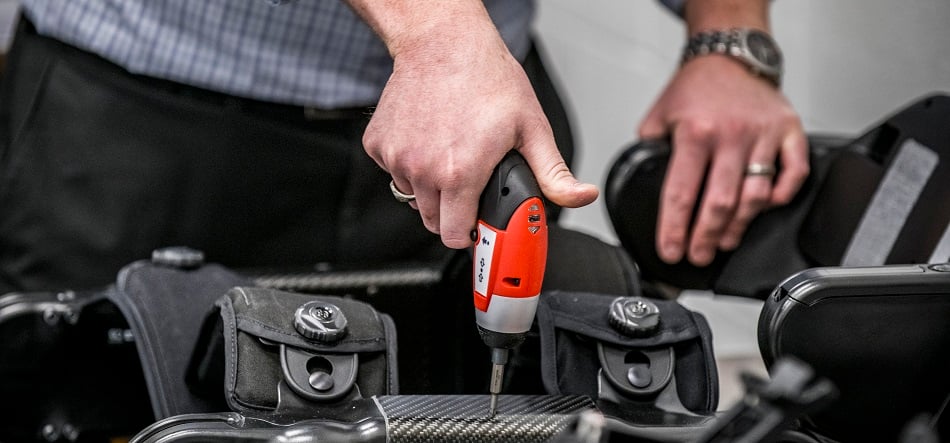
The Pinnacle Degree That Is Modernizing the World
In the past decade, the disciplines of electrical and computer engineering have exploded with the Information Age boom and the incorporation of advanced technologies into everyday life. In the future, these doctoral degrees will become increasingly valuable as our world continues to shift to a reliance on technology.
Recent developments within the field have changed the way we live our lives. Advanced research and product development within the areas of biotechnology, automotive technology, and medical
3D printers offer opportunities to contribute to life-saving medical procedures and advanced national defense systems. Advancements in prosthetics using electronic and computer engineering are giving hope back to injured soldiers and other amputees. From electric cars to nanoscale devices to quantum computing, the list of possible ways that professionals with Electrical or Computer Engineering Ph.D.’s can contribute to a modernizing world are endless.
Notable ECE Doctoral Research at SMU
There are many areas of notable research currently happening within the fields of electrical and computer engineering. The following are four exciting areas of research and pioneering technology on track to upset the norms of day-to-day life:
- Smart Grid — Our nation’s current electrical power grid was developed over 100 years ago and constructed to meet the needs of a simpler time. The infrastructure that was designed was capable of meeting the electrical demands of simple households and smaller communities. To meet the needs of our homes and workplaces today, a smart grid offers two-way communication between the utility and consumers. It will allow for more efficient and reliable electricity delivery, better security, and the incorporation of renewable resources.
- Indirect Imaging — Cameras and imaging technology have developed significantly in the mobile device era. However, fundamental limits on imaging imposed by the optical detectors and digital processing are difficult to overcome. In our research, we investigate and develop groundbreaking new computational imagers that utilize previously ignored modalities to achieve superior performance. One such project underway is the ability to use virtual sources and virtual detectors to image objects that do not have a direct line of sight to the camera.
- Exoskeletons — It has been projected that the number of people with various levels of lower limb imparities will continue to rise over the next decade due to various reasons including diabetes and injury. The design of assistive technologies that can help to provide controlled locomotion for such people is of critical importance. In our labs, we study the design of control systems for exoskeletons that can be attached to the lower limbs and provide the appropriate amount of assistance and stability for motion.
- Circuit Design — The field of electronics has ushered in a technological device growth frenzy that is unmatched in the history of mankind. Despite these developments, there is no slowdown in sight for such technologies. Our work in this area is focused on application specific circuit design which comes with unique challenges. To meet these challenges, our labs are designing ultralow power sensors for ophthalmologic diagnosis and designing devices that can tolerate an order of magnitude higher radiation than current state-of-the-art devices for the next generation Large Hadron Collider.
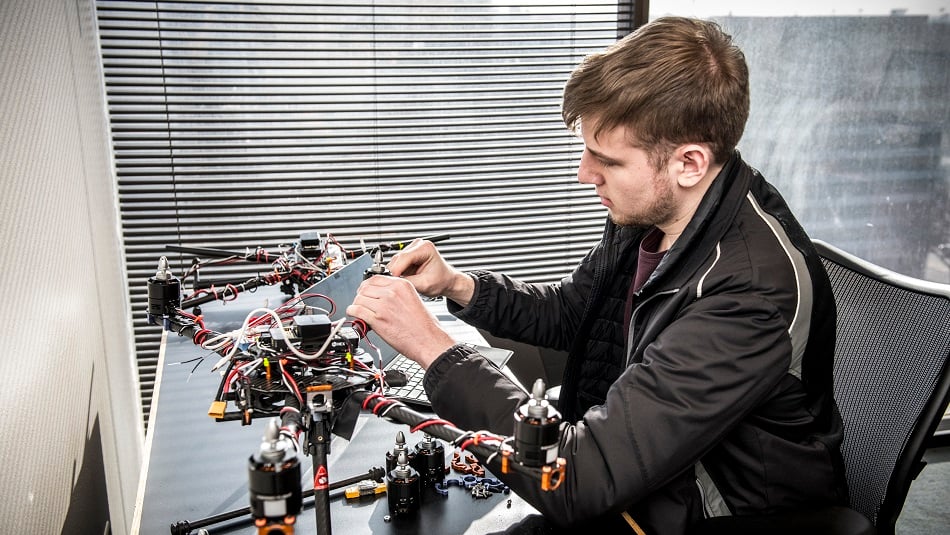
Why Choose SMU? Groundbreaking Research, World-Class Professors, and State-of-the-Art Facilities
Southern Methodist University stands out as a leader in the fields of electrical and computer engineering because the graduate programs offer students the ability to engage in cutting-edge research with world-class professors in state-of-the-art facilities. The faculty at SMU is comprised of a group of leading researchers in their fields. These highly-respected and well-published experts have earned their reputation as the best of the best, after years of research, discovery, and first-hand experience in the field. Students come from all over the world to work alongside the professors at SMU.
Graduates from SMU receive great career and leadership development along with deep technical knowledge. Every Ph.D. student works with a faculty mentor to determine a course and research plan that is individualized to enable each student to reach their full potential. Ph.D. students are encouraged to meet frequently with their faculty mentor and discuss their progress as well as their concerns. Graduate students often find that this personalized attention and mentorship makes all the difference in the pursuit of their degree.
SMU houses exceptional facilities and labs. With the latest technology and advanced materials, students can contribute to progressive and effective research. Explore each of the laboratories available to SMU engineering students below:
REQUEST MORE INFORMATION
Want to learn more about SMU’s graduate programs in Electrical and ComputerEngineering?
Contact us today, we will be in touch!
SMU’s Ph.D. Programs in Electrical and Computer Engineering
Through innovation and hands-on experiences, SMU attracts a diverse mix of talented students interested in making a difference in the world through engineering. With passion and a strong purpose, students of SMU’s Electrical and Computer Engineering doctoral programs are driven to solve the problems of our world today.
With its high-quality education, remarkable facilities, and internationally recognized faculty SMU is known throughout the world as a student-centered and research-oriented university. Together, through partnerships with industry and community, SMU strives to make significant advancements in these areas of engineering.
By fostering premium scholarly research, SMU continues to be at the forefront of scientific advancement and groundbreaking research. Read below to learn more about the main areas of research focus within the electrical and computer engineering disciplines.
SMU’s Main Areas of Electrical and Computer Engineering Research
The broad areas of emphasis in the electrical engineering department are circuits, communications and signal processing, photonics, smart grids
SMART GRIDS AND POWER SYSTEMS

PHOTONICS

Research in photonics looks at fabrication of an efficient monolithic laser source and fiber-like waveguide for use in wavelength division multiplexed (WDM) systems. The scheme for coupling light from a laser to a fiber allows for lower fabrication and production costs by obtaining high coupling efficiencies of light from lasers to glass waveguides.
Faculty and student researchers are also concerned with determining the grating strengths of surface emitting lasers by analyzing the reflection and transmission characteristics of a quantum-well structure with a finite length grating.
BIOMEDICAL INSTRUMENTATION

The Biomedical Instrumentation and Robotics Laboratory research activities promote strong interdisciplinary collaboration between several branches of engineering and biomedical sciences. The research interests are centered on several foci:
- Robotic orthoses, prostheses and rehabilitation devices for people with disabilities
- Medical robotics, especially novel robotic applications in Minimally Invasive, Natural Orifice, and Image Guided and Haptic Assisted Surgery
- In vivo and in vitro measurement of mechanical properties of biological tissue, with emphasis on bone
These foci touch upon fundamentals in analytical dynamics, nonlinear control of mechanical systems, computer-aided design and virtual prototyping, applied mathematics, data acquisition, signal processing, and high-performance actuators.
In biomedical signal processing, human vision models are being developed which link visual acuity to eye motion. Blind system identification algorithms that are robust and provide a substantial improvement in the resolution and quality of medical ultrasound images are being investigated.
COMMUNICATIONS AND SIGNAL PROCESSING

Within communications, research at SMU focuses on antenna design, wireless communications, computer and communication networks, and network and data security.
Research in communication networks aims at developing model classification algorithms to automatically fit network traffic to stochastic models to enable service providers to automatically adapt their traffic control to changing network conditions.
Signal processing covers a wide range of application areas. Blind source separation seeks to undo the acoustical mixing caused by room acoustics in multichannel recordings of acoustic events without knowledge of the sound sources, the room acoustics, or the physical arrangement of sources or sensors in the room. Applications include teleconferencing, audio recording, and surveillance.
CIRCUITS

Our research in circuits covers analog, digital, mixed-signal, and RF Integrated Circuit (IC) design for a variety of applications, including high-speed wireline and wireless communications, data converters, low-power medical devices and instruments, automotive radar, and devices and circuits for radiation, operating in extreme temperature and other harsh environments.
In collaboration with CERN (European Particle Physics Laboratory), Fermi National Accelerator Lab, and Brookhaven National Lab, we explore techniques on the system, circuit, and devise level to enhance the reliability of circuits operating in radiation or extreme temperature environment.
COMPUTER ARCHITECTURE AND HARDWARE SECURITY

Groundbreaking Research Opportunities in Computer Engineering at SMU
As part of our mission, we perform research in many diverse areas within the computer engineering discipline, including the following:
- Data Sciences and Analytics
- Hardware Algorithms/Electronic Design Automation
- Net-Centric Software Systems
- Disaster Tolerance
- Cyber Security and High Assurance
- Creative Computing
Meet J. C. Chiao, Templeton Endowed Professor of ECE
What courses do you teach at SMU and how long have you been teaching here? What is the highest degree you hold and where did you receive it?
What courses do you teach at SMU and how long have you been teaching here? What is the highest degree you hold and where did you receive it?
I am teaching Medical Systems Designs. This course is designed for both undergraduate and graduate engineering students. It is also for all engineering students who do not have any background knowledge in medicine. The goal is to inspire all engineering students, to think outside of the box and utilize their knowledge in engineering to solve tough medical problems.
I received my Ph.D. from the California Institute of Technology. This is my second semester teaching at SMU.
My title at SMU is Mary and Richard Templeton Centennial Chair professor. The endowment was donated by Mary and Richard Templeton. Richard Templeton is the Texas Instruments CEO and chairman of the board.
What initially interested you in teaching on a graduate level?
What initially interested you in teaching on a graduate level?
What research have you been involved in at SMU or elsewhere? Do you have a favorite research project?
What research have you been involved in at SMU or elsewhere? Do you have a favorite research project?
Two research projects I have worked on include:
-
A wireless system for pain management — This is to digitize and document neuron signals to recognize pain (a subject feeling), and use the signals to electrically stimulate nerves to reduce pain. Part of the system is used now to monitor nerve health during spinal corrective surgery for scoliosis patients.
-
Batteryless wireless implants — Miniature flexible implants implemented by endoscopes without major surgeries into the stomach. They are used to monitor acid reflux, stomach motility, and electrically stimulate the stomach to manage gastroparesis.
What about studying Electrical and Computer Engineering poses the biggest challenges for students?
What about studying Electrical and Computer Engineering poses the biggest challenges for students?
I think there are three main challenges for these Ph.D. students:
-
First, I believe there is a “misunderstanding”. Students give up because they often misunderstand the fields. These fields are so wide and full of variety, students should not assume that they will be limited to one specific topic. If they are open-mind to explore possibilities, they will find unlimited opportunities that will fit their own interests.
-
The second challenge is mathematics. Not all students are good at understanding abstract mathematics. Electrical and Computer Engineering courses often require mathematics, especially calculations and deriving equations. Some disciplines only require an understanding of fundamental physics. For example, I often avoid teaching electromagnetics from the mathematical equations but I explain the principles from the physical point of view. Once they establish a systematic reasoning structure in their brain from all the fundamental principles, they can easily extrapolate existing knowledge to assess and analyze problems in the future.
-
The third challenge I have found is that many Ph.D. candidates do not look deeper into their problems. Sometimes, failures are opportunities. Many students treat failing to get the ‘right’ results as a bad outcome. A successful Ph.D. student should be able to analyze the failure and discern possible reasons. These ‘failures’ can often open a new door to good opportunities.
Meet Jennifer Dworak, Associate Professor of ECE
What courses do you teach at SMU and how long have you been teaching here? What is the highest degree you hold and where did you receive it?
What courses do you teach at SMU and how long have you been teaching here? What is the highest degree you hold and where did you receive it?
At the graduate level, I teach a more advanced computer architecture course as well as courses in “Hardware Security and Trojan Detection” and “Testing of VLSI Circuits.” I came to SMU during the summer of 2010. My highest degree is a Ph.D. from Texas A&M University in College Station, TX.
What initially interested you in teaching on a graduate level?
What initially interested you in teaching on a graduate level?
I first considered leaving Brown University for SMU when a friend told me that SMU was hiring in the Department of Computer Science and Engineering and that I should think about applying. I was very impressed by the excitement and vision of the people I talked to in the department, including the focus on security, an area in which I wanted to do more research. I was also excited about being able to work in the DFW Metroplex. The potential for industrial collaborations with companies such as Texas Instruments was very attractive. And it is only a relatively short drive to collaborate with additional tech companies in Austin. Finally, I was very impressed with the students I met during my interview. They were clearly highly intelligent and excited about learning—which makes teaching a joy.
What research have you been involved in at SMU or elsewhere? Do you have a favorite research project?
What research have you been involved in at SMU or elsewhere? Do you have a favorite research project?
My research involves making sure that the digital devices we use every day operate correctly, safely, and securely. As a result, I do research in developing better ways to test circuits for defects. A naïve approach that tests every possible input combination would take longer than the current age of the universe for most circuits, so finding the right tests to apply, and designing circuitry that makes testing easier and more effective is crucial. However, once chips reach the field, latent defects and aging can cause more problems. This is especially important in safety-critical applications like automotive. Thus, testing needs to continue throughout the chip’s lifetime and needs to be highly effective, efficient, and of low power. Finally, even when defects do not occur, security issues can arise due to side-channel attacks, hardware Trojans, and unintentional backdoors. My research covers these areas as well.
What about studying Electrical/Computer Engineering poses the biggest challenges for students?
What about studying Electrical/Computer Engineering poses the biggest challenges for students?
Pursuing a graduate degree means that you need to reach for “the next level.” You are no longer the person being told step-by-step what to do to solve a problem that has been solved many times before. Instead, it’s your job to help solve new problems — and eventually, you find your own new problems to solve.
Careers and Job Outlook For Electrical and Computer Engineering
As an expert in the field with the highest levels of training, education, research, and subject-specific knowledge, doctoral degree holders in Electrical and Computer Engineering have many choices when it comes to a career in the industry. One of the most popular options is to continue researching and publishing scholarly work. This can be done from a lab within the private or public sector, or through a position in academia. Many Ph.D. students also choose to teach at universities while continuing to publish their research.
Those with a Ph.D. in these disciplines can also choose to work in product design and development for engineering services firms, manufacturing companies, technology startups, or for the federal government. With their wealth of knowledge and experience, Ph.D. graduates can also start their own companies or hire themselves out as contractors.
Career opportunities will only continue to grow and expand as technologies advance and are more integrated into 21st-century living. Many of the jobs that these graduates are qualified for have not been created or thought of yet — one of the fascinating challenges this innovative field presents.
Job Outlook
According to the Bureau of Labor Statistics, careers in electrical and computer engineering are expected to continue to grow as fast as average over the next decade. The more experience and specialized skills a candidate has, the more valuable they are to a company and the more competitive salary they can expect. Additionally, with the industry experiencing continual growth and development, these fields enjoy a high level of job security.
Electrical engineers with their Ph.D. and several years of research and experience in the field can expect to make an average salary of $116,000 annually, with the potential to earn even more. The states that employ the highest number of electrical engineers and offer the highest salaries are California and Texas.
Computer engineers who have earned their Ph.D. and are subject experts in their particular field can expect to make an average salary of $146,000 annually. The states that employ the highest number of computer engineers are California, Maryland, and Colorado, with the top paying states for this occupation being California, Virginia, and Maryland. Texas also fell within the highest levels for each of these categories.
Wisdom From A Past SMU Ph.D. Graduate
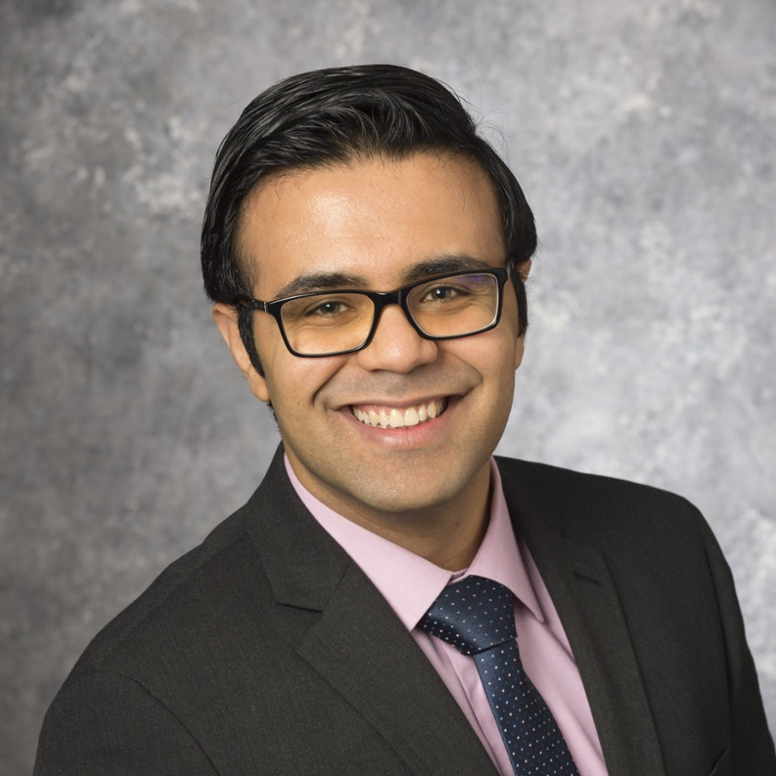
Saeed Manshadi, 2018 graduate of SMU, Ph.D. Electrical Engineering
Tell us a little about yourself. How and why did you choose to study Electrical Engineering?
Tell us a little about yourself. How and why did you choose to study Electrical Engineering?
I was born in Iran and received my B.S. from the University of Tehran, one of the most prestigious universities in Iran. I chose to study Electrical Engineering because of my passion for energy and my desire to discover the best way to save the planet while getting the most out of an electricity grid.
Why did you choose the Electrical Engineering Ph.D. program at SMU?
Why did you choose the Electrical Engineering Ph.D. program at SMU?
I chose SMU because I wanted to work with Dr. Mohammad Khodayar. He was my amazing advisor while during my Ph.D. program.
What job or research did you choose after you completed your Ph.D.?
What job or research did you choose after you completed your Ph.D.?
I am currently a tenure-track Assistant Professor at San Diego State University (SDSU) and teach a course in Electrical Engineering.
What positions have you held since then?
What positions have you held since then?
I worked as a research assistant while at SMU. After graduating I did a very short post-doctoral fellowship at the University of California, Riverside before joining SDSU as an Assistant Professor.
What aspect of the program best prepared you for your career?
What aspect of the program best prepared you for your career?
I believe that my high number of publications in prestigious journals was the aspect of the program that best prepared me for my career in Electrical Engineering.
Why do you think Electrical Engineering is an important and valuable field to study?
Why do you think Electrical Engineering is an important and valuable field to study?
This field is the pioneer of science. Electrical engineering is everywhere and is helping to run the whole modern world.
ADVANCING THE FIELD:
Stories and Resources for Graduate Students
Advancing the Field is a weekly blog that offers prospective graduate students insight and advice as they consider the challenges and exciting possibilities that come with getting a graduate degree.
Subscribe to the Blog Today!
SMU’s Ph.D. Admissions Requirements
The following are the admissions requirements for the Electrical Engineering Ph.D. program at Southern Methodist University:
-
M.S. degree in Electrical Engineering or in a closely related discipline from an accredited U.S. college or university.
-
Excellent academic performance in all completed coursework, with a minimum GPA of 3.0 on a 4.0 scale.
-
Submission of a complete application, including a statement of purpose, official transcripts for all previous undergraduate and graduate studies and payment of appropriate application fee.
-
Submission of official GRE graduate school admission test scores.
-
Three letters of recommendation from individuals who can judge the applicant’s potential success as a doctoral student.
The following are the admissions requirements for the Computer Engineering Ph.D. program at Southern Methodist University:
-
M.S. degree in Computer Engineering or a related field, including Computer Science, Electrical Engineering, Mathematics or Physics, from an accredited U.S. college or university. In the case of direct admission without a previous M.S. degree, please see the additional requirements on SMU’s website.
-
Excellent academic performance in all completed coursework, with a GPA of at least 3.0 on a 4.0 scale.
-
A reasonable level of mathematical maturity.
-
Submission of a complete application, including a statement of purpose, official transcripts for all previous undergraduate and graduate studies and payment of appropriate application fee.
-
Submission of official GRE graduate school admission test scores.
-
Three letters of recommendation from individuals who can judge the applicant’s potential success as a doctoral student.
Learn From Current Doctoral Candidates: What SMU Electrical and Computer Engineering Students Have to Say

Maryam Dezfuli, Ph.D. in Electrical Engineering Candidate
Tell us a little about yourself. How and why did you choose to study Electrical Engineering?
Tell us a little about yourself. How and why did you choose to study Electrical Engineering?
I was born in Iran. In high school, I always loved Physics and specifically electronics. I decided to study Electrical Engineering for my bachelor’s degree. I graduated from the University of Tehran with a bachelor of science in Electrical Engineering, and then immediately pursued my masters in Photonics Engineering. After graduating I started working at the Iran Telecommunication Research Center. Working at a research center for two years made me realize that I need more from my studies and so I decided to pursue my dream of studying abroad.
Did you encounter any hesitations, obstacles or fears about pursuing your Ph.D.?
Did you encounter any hesitations, obstacles or fears about pursuing your Ph.D.?
Committing to a 5-year program always comes with hesitations and fears. You are committing to a graduate student's lifestyle, staying in one place (probably away from your family) and going to a whole new city where you don’t know anyone. Yet, it is all worth it. I love studying and staying in an academic environment. Here you are able to learn and grow, teach and share with others.
Why did you choose the Electrical/Computer Engineering Ph.D. program at SMU?
Why did you choose the Electrical/Computer Engineering Ph.D. program at SMU?
I looked up schools and specifically professors who worked in my field of interest. I contacted them about my interest in their program and applied to eight different universities. I was admitted with a full scholarship from three schools, but I decided to attend SMU for many reasons. First, I wanted to live in a big city with lots of opportunities and Dallas was the best. Another reason was the Semiconductor Processing Clean Room facility at SMU. This resource provides me with a rare opportunity to get my hands on fabrication processes.
Do you have any advice or wisdom you would pass along to a prospective student?
Do you have any advice or wisdom you would pass along to a prospective student?
A Ph.D. program requires a lot of work and can be stressful at times, but you can always find some time to work out or attend a fitness class, or whatever activity you find interesting and stress-relieving. It is very important to not become isolated from the world just because you have a lot of work to do. I cannot emphasize enough the benefit of having extracurricular activities. Specifically, physical activities are very important to decrease your stress level and keep you happy and energetic. I think those are some of the keys to happiness in a Ph.D. program.
SMU’s Ph.D. Degree Requirements
Presently the Lyle School of Engineering at SMU requires 24 credits of course work and 24 credits of a dissertation to meet the requirements for graduation. The typical total time needed to complete a doctoral degree (for a full-time student with an M.S. degree) is between 3-6 years.
Below are the additional degree requirements for the Electrical and Computer Engineering Ph.D. degrees.
Electrical Engineering Ph.D.
In addition to meeting the Lyle School of Engineering requirements for the Ph.D. degree, Electrical Engineering Ph.D. candidates are required to satisfy the following:
-
In consultation with the dissertation director, the student shall select and work with a supervisory committee. The supervisory committee is the primary body that approves the candidate's research.
-
Students must pass a qualifying examination for admission to candidacy for the Ph.D. degree. This exam consists of both written and oral parts and is based on coursework in the student’s major area. The student is required to pass the exam in one of the following areas: Circuits, Electromagnetic Theory and Optics, Communications, Solid-State Devices and Materials, Digital Signal Processing, or Systems and Control.
-
Upon completion of all other requirements, the student is required to take a final examination conducted by his or her supervisory committee, in which he or she will present the dissertation.
Computer Engineering Ph.D.
To meet the graduation requirements for the Computer Engineering Ph.D., candidates must maintain at least a 3.0 GPA every term and at least a 3.3 overall (cumulative) GPA during their course of study. All requirements must be completed within seven years of entry into the program.
The steps for completion of the Computer Engineering Ph.D. are:
-
Initial advising
-
Basic coursework to prepare for the commencement of research work
-
Selection of a dissertation director and supervisory committee
-
Advanced coursework in the chosen research area and guided thesis research to prepare for the qualifying examination
-
Successful completion of the qualifying examination as determined by the doctoral advising committee
-
Dissertation research supervised by the candidate’s doctoral adviser
-
Successful defense of the research leading to the Ph.D.
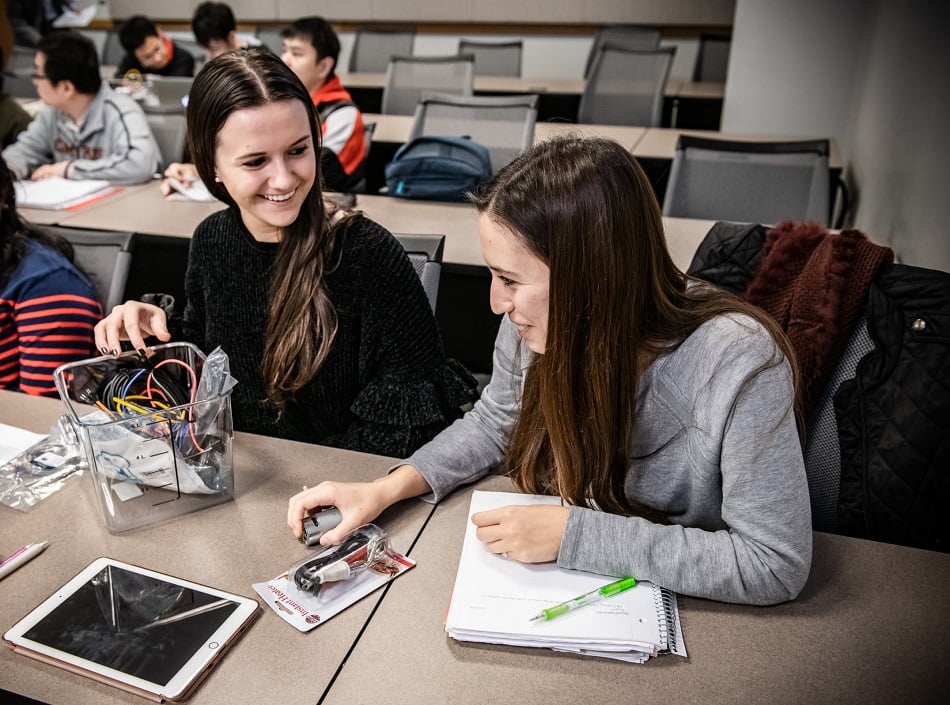
Connect with SMU’s Electrical and Computer Engineering Department
Electrical and computer engineering are so much more than electricity generation and distribution or understanding a computer and its parts — these fields are vast and encompass several applied understandings of interdisciplinary sciences including biology, chemistry, and physics. The intersections between these disciplines (and virtually every other area of study) are endless.
SMU welcomes the next generation of forward-thinkers and innovative-creators to learn more about a doctoral degree in Electrical or Computer Engineering. Students who study these topics today will face new and unpredictable challenges when they graduate, and a Ph.D. will empower them with knowledge for self-learning and systematic analysis.
The students who choose to study in these fields are the ones who will be launching the next high-tech start-up companies, solving the need for affordable healthcare, rethinking an effective and sustainable strategy for our nation’s energy consumption, and protecting us from the unseen and elusive threats of the 21st century.
If you want to be a world-changer, we invite you to reach out to us today!
JUMP TO SECTION
- Pioneers of Science and a Solution for the Modern World: Exploring the Fields of Electrical and Computer Engineering
- A Ph.D. in Electrical or Computer Engineering Gives You Access to the Cutting Edge Research of the Future
- Why Choose SMU? Groundbreaking Research, World-Class Professors, and State-of-the-Art Facilities
- SMU’s Ph.D. Programs in Electrical and Computer Engineering
- Meet the Electrical and Computer Engineering Thought Leaders At SMU
- Careers and Job Outlook For Electrical and Computer Engineering
- Learn From Current Doctoral Candidates: What SMU Electrical and Computer Engineering Students Have to Say
- SMU’s Ph.D. Admission and Degree Requirements
- Connect with SMU’s Electrical and Computer Engineering Department

REQUEST MORE INFORMATION
Want to learn more about SMU’s graduate programs in Electrical and Computer Engineering?


